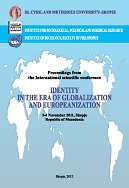
ISLAM AS A GLOBAL PROVOCATION: INTEGRATION OF EUROPEAN MUSLIMS FROM TARIQ RAMADAN’S PERSPECTIVE
The worldview ideas of the Swiss-born of Egyptian origin Tariq Ramadan, who according to the “Time” magazine (2004) is one of the 100 most influential world thinkers and innovators of the 21st century, also called a Muslim Martin Luther, nowadays are very interesting and important in view of the fact of the current global changes and turbulences, when the world entered a dangerous new phase. Islam, as one of the largest world religions whose number of adherents is increasing daily all over the world, and is at the same time the most negatively viewed religious structure (islamophobia), especially after September 11, 2001. Europe and Islam have been in contact ever since the 8th century, but the communication today is far more intensive (over 20 million Muslims live on the Old Continent). Today’s European Muslims are not only newcomers but natives; Euro-Islam converts imbue special nuances to the social milieu. Some, like Tibi, discuss Euro-Islam, others like the xenophobes talk about Euro-Arabia and third ones use neologisms such as Londonistan (M. Phillips). Integration versus ghettoisation, Euro-Islam versus ghettoism, Islamisation of modernity versus modernization of the Islam are the main thesis of Ramadan, a university professor, who, in one of his academic discourses, discusses the subjects of belonging, identity, secularisation, Islam, universality, multiculturalism, integration and etc.
More...